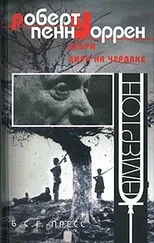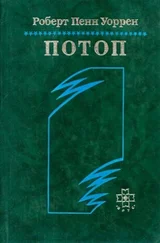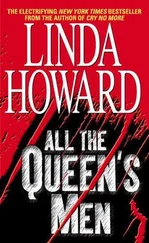Роберт Уоррен - All the king's men
Здесь есть возможность читать онлайн «Роберт Уоррен - All the king's men» весь текст электронной книги совершенно бесплатно (целиком полную версию без сокращений). В некоторых случаях можно слушать аудио, скачать через торрент в формате fb2 и присутствует краткое содержание. Жанр: Современная проза, на английском языке. Описание произведения, (предисловие) а так же отзывы посетителей доступны на портале библиотеки ЛибКат.
- Название:All the king's men
- Автор:
- Жанр:
- Год:неизвестен
- ISBN:нет данных
- Рейтинг книги:4 / 5. Голосов: 1
-
Избранное:Добавить в избранное
- Отзывы:
-
Ваша оценка:
- 80
- 1
- 2
- 3
- 4
- 5
All the king's men: краткое содержание, описание и аннотация
Предлагаем к чтению аннотацию, описание, краткое содержание или предисловие (зависит от того, что написал сам автор книги «All the king's men»). Если вы не нашли необходимую информацию о книге — напишите в комментариях, мы постараемся отыскать её.
All the king's men — читать онлайн бесплатно полную книгу (весь текст) целиком
Ниже представлен текст книги, разбитый по страницам. Система сохранения места последней прочитанной страницы, позволяет с удобством читать онлайн бесплатно книгу «All the king's men», без необходимости каждый раз заново искать на чём Вы остановились. Поставьте закладку, и сможете в любой момент перейти на страницу, на которой закончили чтение.
Интервал:
Закладка:
So George was another unfortunate. I looked at the bread, and said, "Well, he must be pretty unfortunate if that's what he's got to eat.
"He eats some of it," the Scholarly Attorney said, "but that is almost accidental. He uses it in his work. But some of it slips down, I am sure, and that is why he is never hungry. Except for sweets," he added.
"How in God's name does he use bread crusts in his work and the bread crusts slip down his throat?"
"Do not take the name of the Lord in vain," he said. And added, "George's work, it's very clever. And artistic. You will see."
I saw. We got to the top of the second flight, turned in the narrow hall under cracked skylight, and entered a door. There was what I took to be George, in one corner of the big, sparsely furnished room, sitting tailor-fashion on a piece of old blanket, with a couple of big mixing bowls in front of him., and a big piece of plywood about two feet by four lying on the floor by him.
George looked up when we came in and said, "I ain't got any more bread."
"Here it is," the Scholarly Attorney said, and took the brown bag to him.
George emptied the crusts into one of the bowls, then stuck a piece into his mouth and began to chew, soberly and purposively. He was a fair-sized, muscular man, with a hell of a strong-looking neck, and the tendons in his neck worked and pulled slickly while he chewed. He had yellow hair, almost gone, and a smooth, flat face with blue eyes. While he chewed he just looked straight ahead at a spot cross the room.
"What does he do that for?" I asked.
"He's making an angel."
"Well," I said. And just then George leaned forward over one of the bowls and let the thoroughly masticated bread drop from his mouth into the bowl. The he put another crust into his mouth.
"There is one he has finished," the Scholarly Attorney said, and pointed at another corner of the room, where another piece of plywood was propped up. I went to examine it. At one end, the figure of an angel, with wings and flowing drapery, had been executed in bas-relief in what looked like putty. "That one is just drying," the Scholarly Attorney said. "When it gets good and dry, he'll color it. Then he'll shellac it. Then the board will be painted and a motto put on it."
"Very pretty," I said.
"He makes statues of angels, too. See," and he went to a kitchen safe, and opened it, to expose a shelf of dishes and pots and another with an array of gaudy angels.
I examined the angels. While I did so, the Scholarly Attorney took a can of soup, a loaf of bread, and some soft butter out of the safe, put them on the table in the center of the room, and lighted one of the burners on the two-burner plate in the corner. "Will you join me in my supper?" he asked.
"No, thanks," I said, and continued to stare at the angels.
"He sometimes sells them on the street," he said, pouring out his soup into a stewpan, "but he can't bear to sell the best ones."
"Are these the best ones?" I asked.
"Yes," the Scholarly Attorney replied. And added, "They are pretty good, aren't they?"
I said, "Yes," for there wasn't anything else to say. Then' looking at the artist, asked, "Doesn't he make anything but angels? What about Kewpie dolls and bulldogs?"
"He makes angels. Because of what happened."
"What happened?"
"His wife," the Scholarly Attorney said, stirring the soup in the stewpan. "On account of her he makes angels. They were in a circus, you know."
"No, I didn't know."
"Yes, they were what you call aerialists. She did the angel act. She had large white wings, George said."
"White wings," George said through the bread, but it was a sound like _wite whungs__, and he fluttered his big hands like wings, and smiled.
"She fell down a long way with white wings which fluttered as though she were flying," the Scholarly Attorney continued, explaining patiently.
And one day the rope broke," I affirmed.
"Something went wrong with the apparatus. It affected George very deeply."
"How about the way it affected her?"
The old man ignored my wit, and said, "He got so he could not perform his act."
"What was his act?"
"He was the man who got hanged."
"Oh," I said, and looked at George. That accounted for the big neck, no doubt. Then, "Did the apparatus go wrong with him and choke him or something?"
"No," the Scholarly Attorney said, "the whole matter simply grew distasteful to him."
"Distasteful?" I said.
"Yes, distasteful. Matter came to such a pass that he could not perform happily in his chosen profession. He dreamed of falling every time he went to sleep. And he would wet his bed like a child."
"Falling, falling," George said through the bread, with a sound like _fawing, fawing__, but still smiled brightly in the midst of the chewing.
"One day when he got up on his platform with the loop around his neck, he could not jump. In fact, he could not move at all. He sank down on the platform and crouched there weeping. They had to remove him bodily, and bring him down," the Scholarly Attorney said. "Then for some time he was completely paralyzed."
"It sound," I said, "like that hanging act must have got pretty distasteful to him. As you so quaintly put it."
"He was completely paralyzed," he repeated, ignoring my wit. "Through no physical cause–if–" he pause–"anything ever comes to pass from a physical cause. For the physical world, though it exists and it existence cannot be denied without blasphemy, is never cause, it is only result, only symptom, it is the clay under the thumb of the potter and we–" He stopped, the gleam which has started up fitfully in the pale eyes flickered out, the hands which lifted to gesticulate sank. He leaned above the gas plate and stirred the soup. He resumed, "The trouble was here," and he laid a finger to his own forehead. "It was his spirit. Spirit is always cause–I tell you–" He stopped, shook his head, and peered at me before he said sadly, "But you do not understand."
"I reckon not," I agreed "He recovered from the paralysis," he said. "But George is not exactly a well man. He cannot bear high places. He will not look out the window. He covers his eyes with his hands when I lead him downstairs to go on the street to sell his artistic work. So I take him down only rarely now. He will not sit on a chair or sleep in a bed. He must always be on the floor. He does not like to stand. His legs simply collapse and he begins to cry. It is fortunate he has always had his artistic bent. It helps him to take his mind off thing. And he prays a good deal. I taught him to pray. That helps. I get up and pray and he says the prayers after me. When he wakes at night with the dreams and cannot sleep."
"Does he still wet the bed?" I asked.
"Sometimes," the Scholarly Attorney replied gravely.
I looked at George. He was weeping silently, the tears running down his smooth, flat cheeks, but his jawbone was not missing a beat on the bread. "Look at him," I said.
The Scholarly Attorney looked at him. "Stupid, stupid," he muttered fretfully, shaking his head, so that an additional flake or two of dandruff floated down to the black serge collar, "stupid of me to be talking that way with him listening. Stupid–I'm an old man and I forget–" and clucking and muttering and shaking his head in that same fretful fashion he poured some soup into a bowl, took a spoon, and went to George. "Look, look," he said, leaning, with a spoon of soup thrust toward George's face, "good, it's good soup–soup–take some soup."
But the tears continued to flow out of George's eyes, and he didn't open his mouth. But the jaws weren't working on the bread now. They were just shut tight.
The old man set the bowl on the floor, and with one hand still holding the spoon to George's mouth, with the other he patted George on the back soothingly, all the while clucking with that distraught, henlike, maternal little noise. All of a sudden he looked up at me, the spectacles hanging over, and said, peevishly like a mother, "I just don't know what to do–he just won't take soup–he won't eat much of anything but candy–chocolate candy–I just don't know–" His voice trailed off.
Читать дальшеИнтервал:
Закладка:
Похожие книги на «All the king's men»
Представляем Вашему вниманию похожие книги на «All the king's men» списком для выбора. Мы отобрали схожую по названию и смыслу литературу в надежде предоставить читателям больше вариантов отыскать новые, интересные, ещё непрочитанные произведения.
Обсуждение, отзывы о книге «All the king's men» и просто собственные мнения читателей. Оставьте ваши комментарии, напишите, что Вы думаете о произведении, его смысле или главных героях. Укажите что конкретно понравилось, а что нет, и почему Вы так считаете.





![Роберт Уоррен - Рассказы [Компиляция]](/books/419993/robert-uorren-rasskazy-kompilyaciya-thumb.webp)


